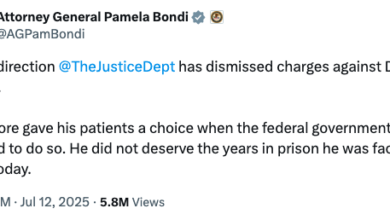Leaders Who Started at the Bedside

Despite nurses being an instrumental foundation to the institution of healthcare, they haven’t always had a say in how healthcare would operate. That started to change around the time women won a long-fought battle to gain the right to vote in 1920—buoyed by the progress that women suffragists made, nurses (who, of course, at that time, were all female) realized the potential impact they could have in the world of healthcare too.
While nursing as a profession, as a whole, has certainly come a long way there is still a lack of political representation for nurses. As of 2022, the ANA notes 14 states lack nurse legislators and of 7,383 state legislators in the nation, only 76 of those are nurses.
Nursing and politics have a long history. Here is a closer look at where nurse political leaders have been—and what they are still working on today.
While many nurses have helped shape healthcare reform and legislation, here are three nurses who were especially instrumental throughout history:
- Lavina Dock. One of the first political acts organized and carried out by nurses was the 1917 White House protest when nurses protested to gain support for changes in healthcare, such as increased hospital funding and improvements for poor and working-class treatment. In attendance at the protest were leading nurse activists of the time, including the influential Lavinia Dock, an independently wealthy nurse who chose to live among poor and immigrant workers, authored the first nurse’s manual on medication, and helped found the American Nurses Association (ANA).
- Mary Eliza Mahoney. As the first African-American licensed practical nurse, Mahoney was one of the original members of the ANA. However, due to a lack of Black nurses in the original ANA organization, Mahoney founded the National Association for Colored Graduate Nurses (NACGN), which was instrumental in breaking down barriers for Black nurses and working to create acceptance for both Black healthcare workers and patients. The NACGN disbanded in 1951 and members joined the ANA, which now works on solving many different racial inequalities in nursing legislature and politics, an issue that continues to be an ongoing one.
- Virginia Avenel Henderson. Known as the “First Lady of Nursing” and the Developer of Nursing Theory, Henderson successfully lobbied with the Virginia State administration to add a segment on psychiatric nursing into the state’s nurse education textbooks.
From bringing mental health to the mainstream to fighting for racial inclusion, nurse political leaders throughout history have worked tirelessly to better the nursing profession. But the work hasn’t stopped. Here are current nurse leaders working to make a difference on the political level, along with some examples of how nurses have impacted legislation.
Congresswoman Lauren Underwood
Congresswoman Lauren Underwood is a Registered Nurse who currently serves as US representative for the Illinois 14th congressional district. At only 37, not only is Congresswoman Underwood the first millennial to represent her community in Congress, but she’s also the first woman and first person of color to do so as well. As a registered nurse, she’s the co-founder and co-chair of the Black Maternal Health Caucus, which addresses America’s Black Maternal Health crisis in Congress and works to create policy solutions to improve Black maternal health disparities, an ongoing critical issue in healthcare. She also has a long history of serving in politics and worked on the implementation of the Affordable Care Act
Mayor Karen Bass
Once a nurse, always a nurse. Although Los Angeles Mayor Karen Bass is retired from her clinical work as a Registered Nurse with a background in social work and public health, she continues working on public health initiatives through policy and political change in LA, such as working on child welfare reform, mental health, and addressing substance abuse.
Jessica Peck
Jessica Peck, DNP, APRN, CPNP-PC, CNE, CNL, FAANP, a clinical professor at Baylor University Louise Herrington School of Nursing, served as founding chair of the Alliance for Children in Trafficking (ACT), a national campaign of NAPNAP Partners for Vulnerable Youth, that trains healthcare professionals on how to recognize and respond to human trafficking in their communities. Dr. Peck has worked with the U.S. Senate and House of Representatives as well as the Office on Trafficking in Persons to create continuing ed for healthcare workers on human trafficking. She also worked to pass House Bill 2059, which requires all Texan direct care providers to take continuing education on human trafficking.
Through ACT, Dr. Peck has provided expert consultation to the United States Senate and the House of Representatives. In partnership with the Office of Trafficking in Persons, Dr. Peck is working to create a set of core competencies for healthcare professionals caring for trafficked individuals. She is the lead medical consultant for Unbound Houston and has helped create statewide continuing education.
As we look ahead to upcoming elections in 2024, you may want to keep your eye out for nurses who are running for office. Some of the nurses who are looking to be elected or reelected in 2024 include:
Lt. Governor Bethany Hall-Long (D) PhD, RNC, FAAN is running to be the first-ever nurse governor in the United States in her home state of Delaware. Hall-Long has a long history in advocating for veterans, healthcare for unhoused individuals, and the disabled. She also served as a longtime nursing professor and one of her doctoral student’s work served as the basis for the Affordable Care Act.
Congresswoman Jen Kiggans (R), serves as Virginia’s Second Congressional District in the U.S. House of Representatives, which includes Virginia Beach, the Eastern Shore, part of Chesapeake and Southampton, Isle of Wight, Suffolk, and Franklin City. She was a former Geriatric Nurse Practitioner and veteran helicopter pilot for the Navy. She will be up for re-election in 2025, with the election taking place in November 2024.
Running for Arizona Senate in November 2024, Burch became an emergency nurse in 2012 and later became an NP. According to her campaign website, Burch “is a nurse at heart and believes in the values that nursing expects within the profession.”
Donna G. Miller, RN, CMTE, is running for Mayor of Las Vegas, NV. She is a transport nurse with over 20 years of experience in leading medical transportation organizations. After immigrating to the U.S. from Romania in 1991, she became a nurse in 1996 and founded Life Guard International Air Ambulance in 2002, which was later acquired by American Medical Response (AMR). She has played key roles in legislative efforts, served in leadership positions for the Nevada Nurses Association, and contributed to numerous disaster responses, including after hurricanes and the Las Vegas mass shooting. Donna is currently the CEO of Reinvention Professionals and actively supports healthcare initiatives through various advisory boards.
Teri Niles (WA 17th Legislative District)
A 25-year ICU nurse veteran, Teri Niles also grew up with a mother who worked as a surgical nurse and proudly uses her nursing background to address all of the issues in her campaign, from substance abuse to accessible childcare to affordable housing. She is running in Vancouver, WA.
Nurses in politics, past and present, have helped shape healthcare in many ways, from enacting policies that influence how healthcare is delivered to how nurses can perform their jobs. Again, like many things in the nursing profession, the battle for inclusion by nurses on the political playing field is ongoing. However, there have been significant strides already made in legislation that nurses have played a role in, such as:
You can track introduced bills relating to nursing in legislation at GovTrack.us, which tells you about the bill, gives updates on where it currently stands and even predicts when it might be passed. Nurses will continue to play important roles in shaping the political landscape and 2024 may just be the year that nursing influences political changes in a historic way.
While all nurses may not hold the same political beliefs, support the same political candidates, or take the same political positions, one thing is for certain: nurses have come a long way since they first protested in 1917 in front of the White House—and this year, more than ever, nurses realize the powerful influence that nurses can have in the political sphere to shape healthcare now and in the future. Find out more about how to get involved in politics as a nurse or nursing student here.






